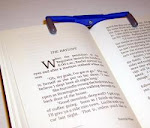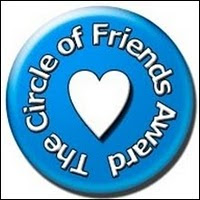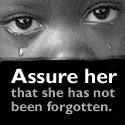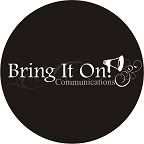One of the hardest tests of endurance - both physical and mental - is the marathon, which is 26.2 miles in length. Fred and I have been participating in them since May, 2008. We are the definition of the amateur. On the other side of the spectrum is Meb Keflezighi, who has been a professional runner since 1999 and a champion at UCLA before that. He has a new book, ‘Run to Overcome ,’ in which he shares his inspiring life story.
,’ in which he shares his inspiring life story.
Here is the synopsis of this engaging and inspirational autobiography:
“I am often at my best when things look the worst.” Meb Keflezighi (Kef-Lez-Ghee) is all about hope and second chances – starting with his own survival. The child of a small African country ravaged by a brutal war, Meb arrived in America with nothing but the clothes on his back, speaking no English and never having raced a mile. So how did he end up an A student, one of the most celebrated and respected athletes of his generation, and winner of the 2009 New York City Marathon?
His story sounds like the living embodiment of the American dream…but Meb’s path to victory hasn’t been smooth. Not long after he stood on the Olympic platform as a U.S. silver medalist, it all came crashing down. And he was about to find out whether his faith in God, the values his parents had taught him, and his belief that he was born to run were enough to see him though.
Run to Overcome tells the inspirational story of a man who discovered the real meaning of victory, and shares the secrets to overcoming the odds in your own life.
tells the inspirational story of a man who discovered the real meaning of victory, and shares the secrets to overcoming the odds in your own life.
Faced with adversity and heartbreak at every stage of his career as a record-breaking long-distance runner, Meb Keflezighi learned from a young age to dream big and never give up – no matter how hard or far away the finish line seemed. In Run to Overcome, Meb reveals the source of his inspirational grit and determination and urges readers from every walk of life to rely on their God-given talents to see them through life’s obstacles.
Here are the biographies of the two authors:
Mebrahtom “Meb” Keflezighi and his family came to the United States after fleeing their native country of Eritrea to escape a violent war with Ethiopia. His unexpected athletic and academic successes earned him a full scholarship to UCLA, where he won four NCAA titles in one year and earned his BA in communications studies with a specialization in business. Meb is an Olympic silver medalist (Athens 2004) and a three-time national champion in cross country running (2001, 2002, and 2009). He came back from an injury to win the 2009 New York City Marathon, setting a personal best time of 2:09:15. Meb became a U.S. citizen in 1998. He lives in Mammoth Lakes, California, with his wife, Yordanos, and their three children, Sarah, Fiyori, and Yohana.
Dick Patrick has worked as a sports reporter and editor at newspapers for 34 years (including more than 24 at USA Today). He has covered Olympics Games, Final Fours, track and field world championships, world cross country championships, and more than 60 major marathons. He has won several Associated Press awards as well as awards from the National Distance Running Hall of Fame and the Women’s Basketball Coaches Association. He recently was named the first winner of the George Hirsch Media Award, presented by the New York Road Runners for contributions to distance running. He lives in Vienna, Virginia, with his wife, Jody, and two children, Eamonn and Shea. This is his first book.
Here is Meb talking about how he overcomes obstacles:
The Foreword, written by a champion in her own right, Joan Benoit Samuelson, does a great job in summarizing the life of this extraordinary man:
“Run To Win” – Meb Keflezighi’s tried and true mantra – doesn’t begin to describe a life and a career that has helped escalate advancements in distance running among American men in recent years. In fact, winning through running is a small part of what winning really means to Meb and his family, who emigrated to the United States of America from Eritrea via an escape route through Italy in 1987.
Run to Overcome is an inspiring account and autobiography of a highly decorated American distance runner and marathoner who has become a warm and giving friend to many of his fellow athletes. Meb is also a global role model for aspiring runners. (p. xi)
is an inspiring account and autobiography of a highly decorated American distance runner and marathoner who has become a warm and giving friend to many of his fellow athletes. Meb is also a global role model for aspiring runners. (p. xi)
Meb opens his book by explaining that he asked for help from God:
I run a lot and pray a lot, but I generally don’t ask God for a win. I was breaking precedent at the 2009 New York City Marathon.
Knowing I’ve worked my hardest in training, I am usually content to see whoever’s best on race day win. But on November 1, 2009, I wanted – I prayed – to be the first across the finish line in Manhattan’s Central Park.
Waiting for the 26.2-mile race to start, I stood on the Verrazano-Narrows Bridge in the front row of nearly 42,000 runners, braced against the chilly temperatures with my beanie, gloves, and arm warmers. I couldn’t help but think of how far I had come – and how much I had overcome – since my childhood days in a war-torn African village. (p. 1)
Meb’s faith developed early in life and was influenced by his family:
From my parents, I learned early about the power and majesty of God. Our reverence for God extends to our church. We remember God’s command to Moses – “Take off your sandals, for the place you are standing is holy ground” (Exodus 3:5, NIV) – and seek to honor the place where we come to worship him. That explains the many signs of respect that are part of our faith – such as kissing the church door and making the sign of the cross (crossing ourselves) when we pass by the church. These simple acts may appear strange to others, but to us they are reminders that God is holy and we are not to take Him or our faith for granted.
Our parents encouraged us to pray not only when we go to sleep and wake up, but also when we start and finish any task, whether it is eating a meal or starting a trip out of town. My parents’ strong belief in a mighty God enabled them to maintain their faith against all odds – and that’s another value they taught their children. We don’t give up easily. (p. 12)
Meb had a very impoverished childhood:
At times food was so scarce that I literally ate dirt. I’d dig into the soil until it became dark and moist, putting it in my mouth so I could soak up some of the nutrients my body craved. Even though it sounds strange, it was a means of survival. I was skinny but had a distended stomach. That gave me my nickname, “the kid with the bloated stomach.” (p. 22)
Eventually, the family was fortunate enough to immigrate to the United States; they are the embodiment of the American Dream:
…On October 21, 1987, we were on a plane to San Diego. There was no way then to predict that Fitsum would graduate from the University of California at San Diego with an engineering degree; that Aklilu would go to UC-Santa Barbara, study economics and political science, and get an MBA; that Bahghi, Merhawi, and I would graduate from UCLA, where Bahghi would also go to medical school and Merhawi to law school; that Bemnet would graduate from UC-Santa Cruz; that Adhanet would graduate from Stanford. There would be three more children born in the United States: sister Fnann, now chair of the Black Student Union at UC-San Diego; sister Ziada, who attends UC-Berkeley; and brother Admekom, a junior in high school. (p. 27)
Meb started running after his family came here:
…Sports was a good way for me to assimilate myself into a new culture. Participating in sports gave me an identity other than the kid with a hard name to pronounce. I was the fastest kid at school. People were giving me high fives. Sometimes the compliments came with more teasing: “You were running from the lions and tigers. That’s what made you fast.” After the first year, we had learned English well enough to communicate more. Prior to that, we were so quiet that other students thought we must be stupid. (p. 38)
Running appealed to him for many reasons:
The individual nature of running appealed to me. You start at the same time at the same place with your fellow runners. You all finish at the same place. How you do is largely up to you. If you win, you congratulate your team and yourself. If you lose, you evaluate how to improve. You can’t make excuses like “He didn’t pass me the ball” or “The coach didn’t put me in.” It’s on you. That’s the beauty of the sport. (p. 42)
Meb had wanted to be married; his dream lady appeared in San Jose, California at a soccer tournament:
On the opening day, I was watching a game when a guy accompanied by several women sat down near me. I couldn’t keep my eyes off one of the women. Not only was she good-looking and well dressed, but I liked her manner. She carried herself well and seemed friendly, greeting anyone who approached her group. Bells were ringing inside of me. Of course, I did not say one word to her. (p. 137)
He ultimately found out who she was; they were married a little over a year later.
Yordanos was equally impressed with him, as she shared in the book:
The more I talked to Meb, the more I felt like I was talking to someone who was an exact reflection of my values, who I am, and what I stand for. It was friendship at first, but the more we talked, it was hard to resist falling in love. I was making excuses for not having a relationship because I didn’t want to deal with the long-distance aspect. But you can’t fight that, especially when you hear a voice that is echoing.
I prayed really hard about it. I said, “Lord, I don’t want to break what you have for me. I remember I prayed at the beginning of the year for something special.” I decided I wasn’t going to mess it up because my mind was thinking a long-distance relationship wasn’t practical. I felt we had a special chemistry, and I was going to commit to making it work. (p. 140)
Meb goes into great detail about his training techniques. Here is a glimpse into the life of a marathon professional:
A typical marathon buildup week starts on Monday – an easy day – with a single 10- to 12-mile run. It used to always be 12 for me, but now that I’m getting older, I realize that one fewer mile may be better than one more mile. The run is followed by a 15-minute ice bath – I often go to a nearby creek for these – to help my legs recover. I take the afternoon off from running because I need to recover from the previous day’s long run: 36-plus miles within 24 hours would be too much to take. Later in the day, we head to Snowcreek Athletic Club for a gym session that includes core and flexibility exercises, weightlifting, and plyometrics – exercises to increase explosiveness. (p. 151)
Here is Meb on ‘Late Show With David Letterman’ after his 2009 New York City Marathon win with the ‘Top Ten Thoughts That Go Through Your Mind When Running the New York City Marathon.’ I think this really shows his heart and his humor:
Here is Meb describing that experience in his book :
:
I finally appeared on the Late Show With David Letterman. Dave asked me a couple of questions as I stood on the set to his right, dressed in a gray Nike sweatsuit with my gold medal hanging from my neck. I cracked Dave up when he asked me what I was doing in the last mile. “Celebrating,” I said. I didn’t realize he was asking for my split time in the final mile…
In all, I got about five minutes of air time that ended with a handshake and bouquet of roses. Another dream accomplished. (pp. 213-214)
Meb describes his vision for the next few years of his career:
So what’s next? I would love to keep running competitively for another three years and make the teams for the 2012 London Olympics and 2013 world track & field championships. I know I can run faster in the marathon, half marathon, and 10K. If those things don’t happen, though, so be it. I’ll still be content with my productive and consistent career. (p. 221)
He sums up the most important message that he wants to convey in his life:
As our daughters grow, Yordanos and I will ask only that they put forth their best effort in whatever they do.
That’s really the message I most want to convey, whether I’m running, coaching, or speaking. I like how the apostle Paul, who used the ancient Isthmian Games as a metaphor for our spiritual life, put it in 1 Corinthians 9:
Don’t you realize that in a race everyone runs, but only one person gets the prize? So run to win! (verse 24)
As every marathon runner knows, you must prepare yourself for the journey. Without proper training, you will never finish. And even with proper training, you never know what will happen on race day. The weather, the course conditions, your own body – all may seem to conspire against you.
“If there is no struggle, there is no progress,” said the great American abolitionist Frederick Douglass. What an apt description of the marathon. And what a perfect description of life.
All athletes are disciplined in their training. They do it to win a prize that will fade away, but we do it for an eternal prize (verse 25)
As important as training and fitness are, they are not the top priority. Sports may bring you great joy; they may help support your family; and they can certainly bring glory to the Lord. Yet, as Paul points out, it’s even more critical that you and I submit to the daily discipline of obeying God, knowing that He promises to reward us and supply all our needs. (p. 224)
He concludes his book with this valuable piece of wisdom:
Winning in life doesn’t happen when you overcome just one thing – do or die. It’s persevering, knowing that difficulties are bumps in the road, not the end of the world. It’s continuing to do the right things, knowing your time will come. After all, you have to conduct yourself like a champion before you can ever win a championship.
Whatever you do, then, give it your best. Persevere in overcoming obstacles. When you do, you’ll be running to win. (p. 224)
Every chapter ends with one Runner’s Tip and one Overcomer’s Tip. The Overcomer’s Tips are applicable to all aspects of life, not just running. Here are some that I loved:
Once you’ve committed yourself to something, pace yourself to the finish line. (p. 5)
Before making a decision, step outside the situation to get the best perspective. (p. 81)
Instead of rushing to make things happen, rely on God’s perfect timing. (p. 148)
Start out with reasonable expectations. What you want to accomplish and where you are in the process may be far apart right now. Your assignment is to close the gap. (p. 169)
When situations blindside you, count on God to see you through. You can’t imagine the intricate details He will put into place. (p. 191)
Fred and I had the privilege of meeting Meb at the Pittsburgh Marathon Expo on April 30, 2010, less than two weeks after his fifth place finish at the Boston Marathon. We only spent a few moments with him, but it was obvious from that brief encounter that he is personable and very humble. When I found out Tyndale House was publishing his book and sponsoring a blog tour, I knew I wanted to jump on that blog tour bus (thanks, Christy, for including me!). I am a Meb fan, and will always follow his achievements on the marathon circuit, including his effort to repeat as winner of the New York City Marathon on November 7, 2010 (you can learn more and follow his progress here). He is a remarkable man, and I am so glad to have had the opportunity to both meet him and read this amazing book about an inspirational man and his high-achieving – and God-honoring – family who have overcome so much. God has blessed them indeed, and it is such a testimony to hard work and God’s provision and blessings.
Tyndale House is running a special contest on the Run to Overcome website. They are giving away one signed book per day from Nov. 1, 2010 – Mar. 31, 2011. There will be monthly grand prize winners that will receive a signed copy of the book, other free Tyndale titles, as well as Sony and PowerBar products.
You can order this book here .
.
This book was published by Tyndale House and provided by them for review purposes. You can learn more about this book at the Run to Overcome website.
































.jpg)







No comments:
Post a Comment